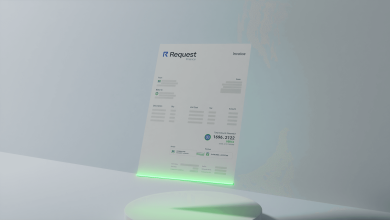How to Manage Debt at University

Is your student loan debt making you feel overwhelmed? You’re not the only one who feels this way: In the United States, student debts exceed more than $1.6 trillion. Only the magnitude of the nation’s mortgage debt is larger.
Student loans, ironically, are making it more difficult for college graduates to purchase a home. Politicians are arguing about what to do about the situation, but individuals in the United States cannot wait for them to figure it out.
Creating a strategy for managing your student debt is crucial to your long-term financial well-being.
Do you also have a debt problem?
You don’t have to owe a lender tens of thousands of pounds to suffer the effects of debt. When should you take action to address your debt, and how do you know if you have a problem?
Everyone has their unique debt tolerance, however, there are certain major warning indicators to look for and avoid:
- You frequently use a credit card or an overdraft to pay for daily expenses such as groceries or gas.
- You haven’t paid your bills or made your repayments on time.
- You’re concerned about your financial situation.
- On a limited income, you’re managing various debts.
- You keep bank statements, receipts, and bills hidden or avoided.
- You’ve received notices from a lender, a bailiff, or a legal entity.
Creating a strong budget may sometimes be really beneficial in getting you back on track. Other times, a strong cup of tea and a serious discussion with your parents, a university money adviser, or a debt advisor are required. Whatever path you choose, the most essential thing is to get started.
Manage any existing debts you may have.
- If you do run into issues, strive to reduce your expenses.
- Determine what you can live without in order to save money.
- Don’t take out another loan since you’ll wind up paying more in interest.
- Instead, make a reasonable payment plan so you won’t have to worry about it and can instead concentrate on your education.
Then, perhaps, you’ll be able to finish your education with the least amount of debt feasible.
Investigate Other Options
If you have a federal student loan, you may be able to work out an alternate repayment plan with your loan servicer. Among the possibilities are:
Graduated repayment: Over the course of the loan’s ten-year duration, your monthly payments will increase every two years. By allowing entry-level incomes, this strategy allows for minimal payments early on. It also implies that as the decade unfolds, you’ll obtain increases or move on to better-paying positions.
Extended repayment: This option allows you to spread out your loan over a longer length of time, such as 25 years instead of 10, resulting in a cheaper monthly payment.
Income-driven repayment: Payments are calculated based on your adjusted gross income (AGI) and are limited to no more than 20% of your income for up to 25 years. Any remaining balance on your debt will be canceled after 25 years.
Pay as you earn: If you can establish financial difficulty, monthly payments are capped at 10% of your monthly salary for up to 20 years. The requirements can be stringent, but if you’ve met them, you can continue to pay under the plan even if you no longer have a financial hardship.
Consolidation is something to consider.
Once you have all of the information, you may want to consider combining all of your debts. Consolidation has the advantage of reducing the amount of money you have to pay each month. It also typically lengthens the time it takes to pay off your debt, which is a mixed good. Remember that while it may offer you more time to pay off the loan, it also means you’ll be paying more interest.
Furthermore, the merged loan’s interest rate may be greater than the interest rate on some of your present loans. Before you sign up for consolidation, make sure you compare loan conditions.
There’s one thing you should bear in mind. When you combine your loans, you give up your entitlement to deferral and income-based repayment plans that come with some federal loans.
Conclusion
Never take out a loan until you’re certain you’ll be able to pay it back in full. If your loan allows you to make free overpayments, it can be worth it to save some money to help you pay it off faster.
If you’re having trouble making a payment, call your lender right away. They might be able to work out a payment plan with you to help you manage the debt until you’re back on track with your finances.
Again, it’s critical to get assistance from a debt counseling agency or a financial adviser at your institution about how to go about paying off your debt. That is where Forget Student Loan comes for the ultimate help. You can get answers to all your questions about available student loans, repayment options, and eligibility requirements/status. The assessment service is all free from Forget Student Loan via dialing 800-881-0687.



